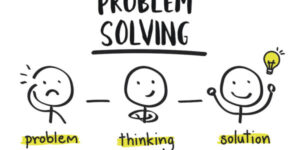I was asked this question by a potential client last week and I thought it was a really really great question. “I do feel that things aren’t quite right within the team at the moment. There’s some apathy and a sense of riding it out, but I honestly can’t recall what we were doing differently when things were good. I mean, what changed? And how do I know that I’ve got a Motivated Team again?”.What a brilliant question. With something as intangible as Motivation, how do we know that we’ve got it. What would we see and how can we measure it?
Key indicators you would see when your teams are fully engaged and motivated.
- Big Picture Discussions: They know and discuss the big picture Vision on a regular bases. They understand the win/win nature of what the business does and believe in the importance and benefits to all the stakeholders, particularly themselves. They want to know how “WE” are doing? They “Thinking Forward” and look for possible innovations.
- The Process Flow: They take an interest in areas beyond their own responsibility. Understanding the significance of each part in the overall process. Considering how they can help other areas to overcome hurdles. They contribute to challenges and partake in solutions with a view on the results benefiting the entire process.
- Challenged Teams: Your people are challenged by their business objectives. They regularly consider new and untried ways to gain some advantage. They want to find better ways to improve performance.
- Collaboration: They openly discuss challenges and areas they feel could improve. They share ideas and ask for critique to help to make those ideas better. They look to contribute and don’t need total ownership of the success. They operate from a place of synergy, not compromise. Where 1+1 can equal 3, not 1.5 (ie Where collaboration can add up to more than the sum of it’s parts rather than “less than”). They know that “No one of us is cleverer than all of us”, and are therefore driven to make improvements, not their own personal victory/success.
- Healthy Debates: Everyone feels happy to express their view. They start by not looking to defend their opinion, but wanting to help by contributing to an alternative option worth trying. People want to fully understand, so ask for clarity. They “Seek first to understand and then to be understood”.
The list can go on, but if, when you rate your team against these key indicators, you can honestly score them an average of 8/9 out of 10, then your team is Motivated. If not, it’ll give you something to work on. Imagine if you had a motivated team that scored high against these Motivational Indicators, how would that impact performance improvement? How would that keep you ahead of the competition? How would that impact your bottom line? When teams lack motivation, we get acceptable returns from their obligatory effort. When teams are motivated, we get exceptional returns from their discretionary effort. How does your team measure up?
There is only one thing worse than an unmotivated team, that’s an unmotivated Leader. So run the ruler over your teams using some or all of these key indicators. At worst it’ll affirm that your people are in a good place, at best it’ll highlight gaps and areas that you can focus on to relight the fire of motivation in them. Be careful to light it “In” your people and not “Under” your people. This will make the difference in getting that Discretionary effort as opposed to the obligatory effort that kills their Motivation.
Damian Shields is a Performance Coach and the owner of Focus2Succeed. He works with Leaders & Teams to help them “Get their world in Focus & Design their future”. To find out more go to www.Focus2Succeed.ie. You can contact Damian @ Damian.Shields@Focus2Succeed.ie or on 00353 (86) 2512421




